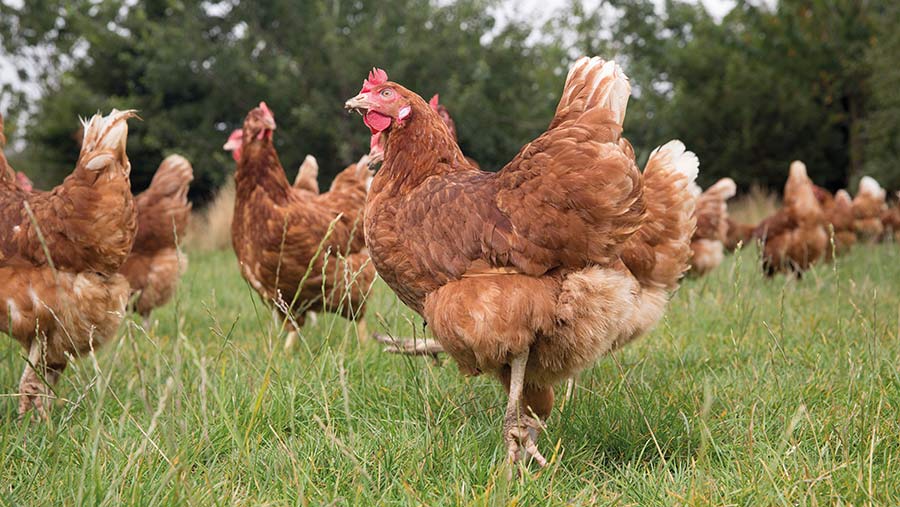Poultry bird flu vaccination considered as outbreaks increase
 © Tim Scrivener
© Tim Scrivener Vaccinating poultry against avian influenza has moved up the agenda after the latest data confirms the worst year on record for the disease in the UK and Europe.
Between 11 June and 9 September 2022, there were 56 outbreaks in poultry in the UK, plus 22 in captive birds and 710 in wild birds.
See also: Tough avian flu rules imposed in East Anglia
This is against a backdrop of 788 highly pathogenic avian influenza (HPAI) virus detections reported in 16 EU and European Economic Area countries during that period, according to data from the European Food Safety Authority (Efsa).
“The unusual persistence in wild birds continued throughout the summer and occurred in 15 European countries,” it said in a new report.
In previous years, no cases or only a few cases were detected during the summer period.
Epidemic
Efsa said the overall 2021-22 HPAI season had produced the largest epidemic so far observed in Europe, with 2,467 outbreaks in poultry and 47.5 million birds culled.
Heavily infected wild birds present an ongoing risk of infection for domestic birds, with 3,573 HPAI events recorded in wild birds in the past 12 months.
With cases detected in poultry and wild birds continuing into September, the current epidemic is clearly still ongoing, warned Guilhem de Seze, Efsa’s head of risk assessment.
“As autumn migration begins and the number of wild birds wintering in Europe increases, they are likely at higher risk of HPAI infection than in previous years due to the observed persistence of the virus in Europe,” he said.
Meanwhile, in its latest briefing, the Animal and Plant Health Agency (Apha) said the H5N1 bird flu strain had been confirmed at a premises near Kidsgrove, Newcastle-under-Lyme, Staffordshire, on 3 October.
It comes after the virus was confirmed on 1 October at a second premises near Bury St Edmunds, Suffolk, and two more premises near Attleborough, Norfolk.
Vaccination
Some countries, including China, have been vaccinating against the virus for some years, but vaccination is banned in the UK and Europe.
However, the EU is understood to be considering reversing its ban after the escalation in cases.
Ian Brown, Apha head of virology, said there was now a change in thinking, with a number of vaccine candidates being actively tested.
Those were needed because the vaccine licenced for use in Europe is poorly matched to the current H5 virus strain.
“Work we are doing is showing that the vaccine is so mismatched that the immunity it offers is unlikely protect the birds against infection from this new H5N strain,” he told BBC Radio 4’s Farming Today programme.
But, given the severity of bird flu this year, the UK should be ready to use vaccines, he suggested.
Birds can be vaccinated via an injection into the egg or a spray onto chicks.
As with vaccinating cattle for bovine TB, one of the issues is that it is not possible to differentiate between vaccinated birds and birds with infection, so spread of the disease cannot be monitored.
However, the next generation of vaccines offer that possibility.
